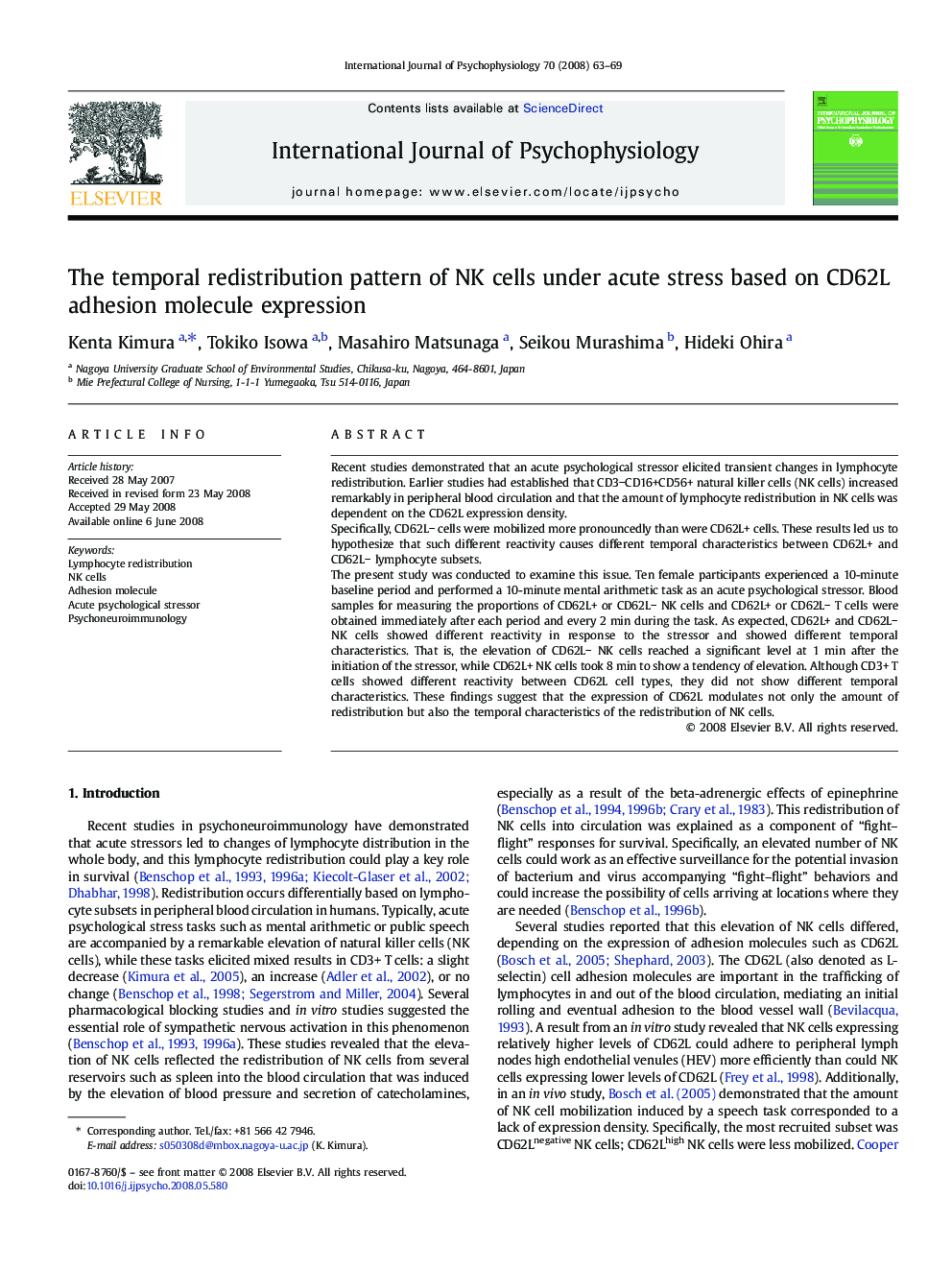| Article ID | Journal | Published Year | Pages | File Type |
|---|---|---|---|---|
| 931496 | International Journal of Psychophysiology | 2008 | 7 Pages |
Recent studies demonstrated that an acute psychological stressor elicited transient changes in lymphocyte redistribution. Earlier studies had established that CD3−CD16+CD56+ natural killer cells (NK cells) increased remarkably in peripheral blood circulation and that the amount of lymphocyte redistribution in NK cells was dependent on the CD62L expression density.Specifically, CD62L− cells were mobilized more pronouncedly than were CD62L+ cells. These results led us to hypothesize that such different reactivity causes different temporal characteristics between CD62L+ and CD62L− lymphocyte subsets.The present study was conducted to examine this issue. Ten female participants experienced a 10-minute baseline period and performed a 10-minute mental arithmetic task as an acute psychological stressor. Blood samples for measuring the proportions of CD62L+ or CD62L− NK cells and CD62L+ or CD62L− T cells were obtained immediately after each period and every 2 min during the task. As expected, CD62L+ and CD62L− NK cells showed different reactivity in response to the stressor and showed different temporal characteristics. That is, the elevation of CD62L− NK cells reached a significant level at 1 min after the initiation of the stressor, while CD62L+ NK cells took 8 min to show a tendency of elevation. Although CD3+ T cells showed different reactivity between CD62L cell types, they did not show different temporal characteristics. These findings suggest that the expression of CD62L modulates not only the amount of redistribution but also the temporal characteristics of the redistribution of NK cells.
